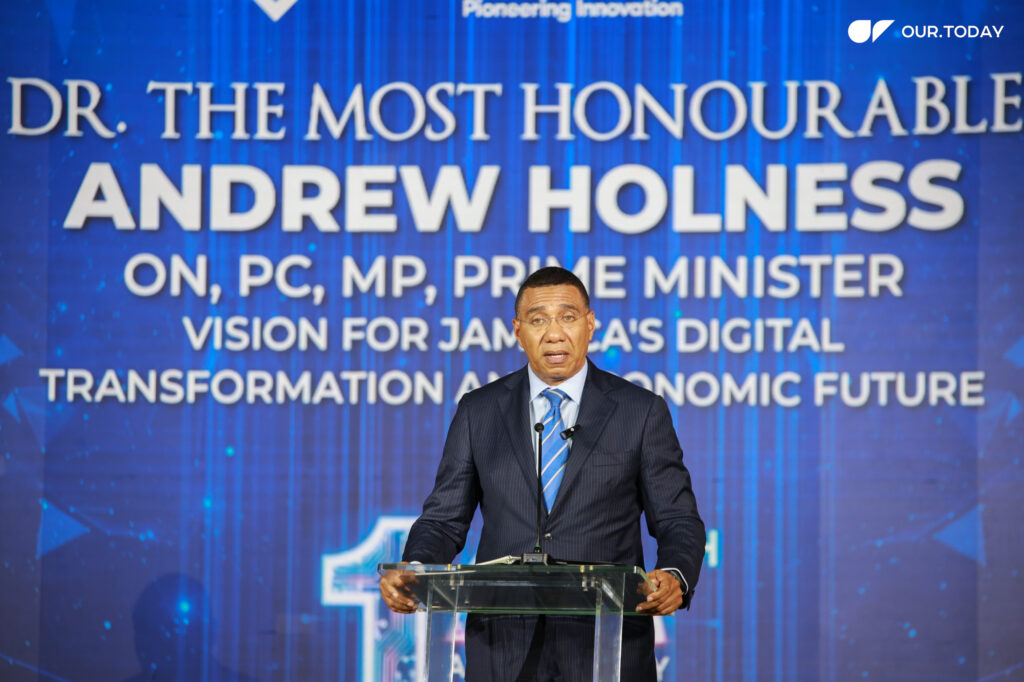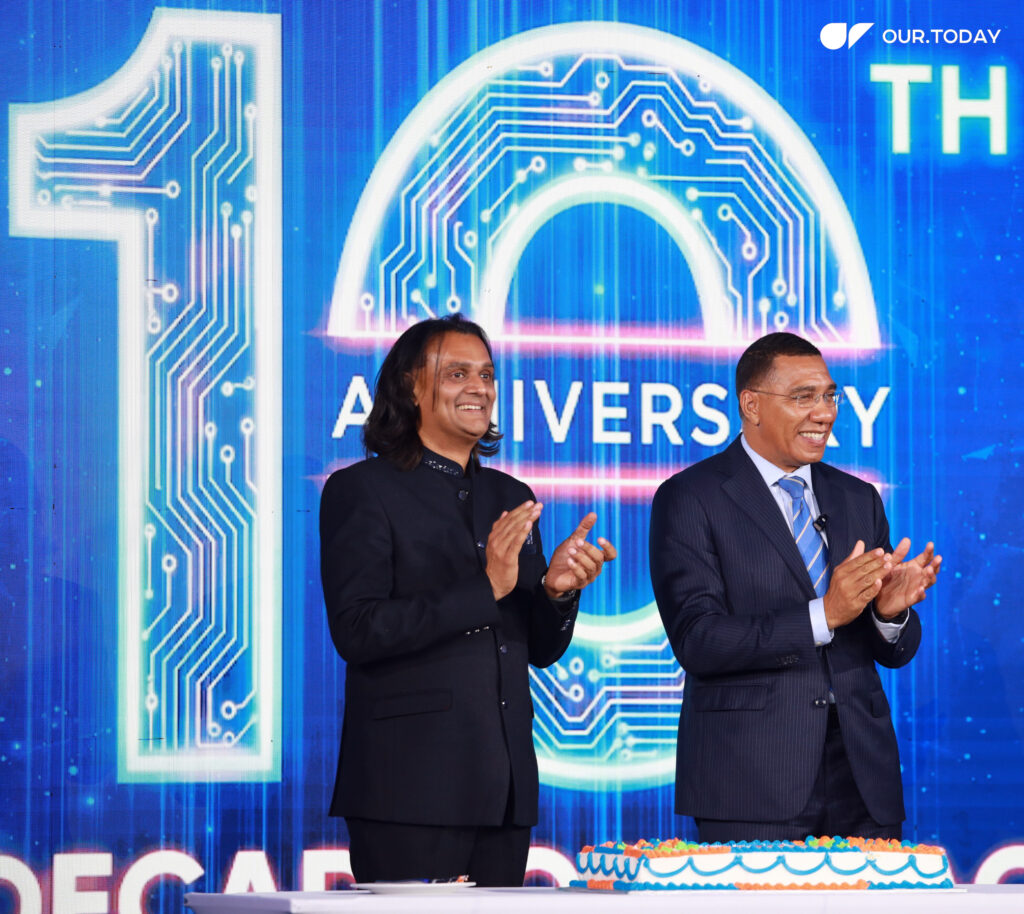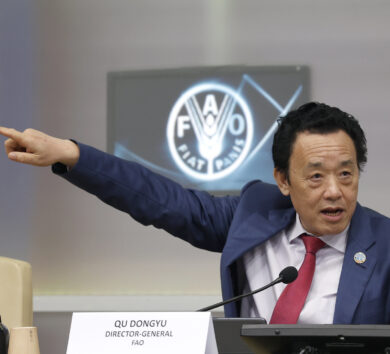

Prime Minister Dr Andrew Holness gave the keynote address at the Amber Group’s tenth anniversary gala held at the AC Marriott Hotel in New Kingston on Tuesday evening (October 14), and I was sitting very close to him as he took to the podium.
So it’s incredulous to hear writers, pundits, bloggers and YouTubers saying that the prime minister is calling for artificial intelligence (AI) to be the panacea for the country’s economic problems.
He never said that. In fact, his presentation was the best thing said all night and warrants closer attention.
What he did say was that Jamaica must use AI technology to increase the level of training and skills in our society so that our people can take on higher-order tasks, which brings higher-order pay.

It is disingenuous to proclaim that the prime minister is calling for the country to turn to AI and displace a large segment of working-class Jamaicans. He did not call for some dystopian scenario where Jamaica is a techno state, governed by soulless machines.
Macroeconomic stability has been attained, and credit must be graciously given for that. Now, the task is to maintain sustainable growth driven by productivity and a skilled and prepared workforce. Jamaica can no longer wallow in anaemic growth of one per cent per annum.
The government can start by reducing imports, first with its food bill. This should help to spur agriculture and create jobs. The late Don Wehby, former CEO of GraceKennedy, repeatedly called for Jamaica’s food importation bill to be reduced by 50 per cent by 2030. Now that’s a good start.
Then there is upskilling of the workforce and putting in place an education system that works. It is here that Holness saw where AI technology can be employed effectively.
“By 2030, we will have to contemplate the Jamaica Development Vision 2030, which is just five years away. We have committed to making Jamaica the place to live, work, raise families and do business. A part of that vision is how we integrate technology, and the integration of technology doesn’t happen automatically; it requires champions.
“I can say here, today, Dushyant Savadia is not just an ambassador but a champion for technology. I want to congratulate you sir, you are Jamaica’s champion for technology,” said the prime minister.

He went on to add that the Jamaica Learning Assistant, in which Dushyant Savadia played an instrumental role, demonstrates that AI should be embraced and if used properly, it can create a revolution in access to education in Jamaica, and we should all thank Dushyant for that.
“A lot has been said about AI. I don’t propose to know anything about AI. The most I know is to use ChatGPT. What I will say is Jamaica needs to prepare itself for this dispensation of the Fourth Industrial Revolution, where the cyberworld will be paired with the physical world, so you are living in the cyber/physical world where technology and machines are working together, not just to deliver the services in an independent way that was largely delivered in a non-physical way.
“Now you have machines that can be deployed with AI that can function physically. So it’s not just all about call centre jobs that we need to be looking at closely; it is other kinds of jobs that will be impactful. The solution is not to hide from it; we should not be fearful of it. The solution is for us to use the technology to increase the level of training and skills in our society so that our people can take on higher-order tasks, which brings higher-order pay.”
That is the point Prime Minister Andrew Holness was making. AI must be used judiciously to bolster the skill sets of the workforce, and Jamaica should aspire to more sophisticated, technical jobs which command higher salaries. This will benefit the economy.

“For decades, we have hidden from the issue of productivity. Much of that is because of our history of slavery and colonialism. But if we are to survive as a country that cannot rely on natural resources ( we are unlikely to discover oil in any meaningful quantities), we have to provide better and more services.
“Seventy per cent of our economy is from services. It means if our economy is to grow, the services we provide must either expand or the quantity and sophistication of the services have to improve. So it means the challenge for this country and the administration I lead is to upskill every Jamaican,” declared Prime Minister Andrew Holness at the AC Hotel.
This is an astute observation and one that must be worked upon. Jamaica does not have a silver bullet economy. It must offer quality services and attract investment if it is to achieve growth of more than two per cent per annum. It can no longer rely on tourism and remittances, both of which can be threatened by external forces that have the power to pull the plug. Ideally, you want to hold your destiny in your own hands and determine your fate.

Here, the prime minister is seeing the bigger picture and how best to train a largely uneducated workforce in the quickest time. For decades, Jamaica has been unable to make that quantum leap in that regard—perhaps AI can help here.
The prime minister continued: “Yes, we are very proud to say we have 3.3 per cent unemployment. That is just the base and solves step one of the problem. Step two of the problem is to increase the productivity and level of tasks and undertakings that 96 per cent are doing.
The challenge is twofold: 1. Upskill to higher-level jobs and 2. Upskill to more sophisticated tasks .”
Productivity has bedevilled the Jamaican economy for the better part of a century. It has not been a standout in modernity. A lot of Jamaicans are happy to get away with doing the bare minimum. That mindset has to change if Jamaica is to prosper. Greater levels of productivity are needed. Employers and employees have to sing from the same hymn sheet on this.
The prime minister is not saying, ‘Leave it all to AI, and it is the solution to everything’, no. What he is saying is that more productivity is required to create aggregate demand and generate greater revenues, and so technology should be utilised in this endeavour. It makes sense.

He concluded, “So the level of underemployment in society is now a challenge. For us to treat that rapidly and at scale means we have to embrace technology. So the AI is actually an advantage for us if we embrace it and use it in the right way, but ensure our labour force gets the training, the experience to take on higher-skilled, more sophisticated tasks that will grow our economy.”







Comments